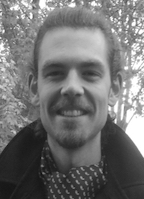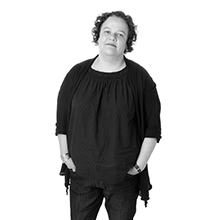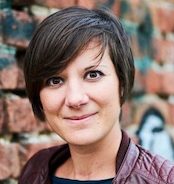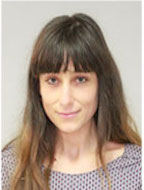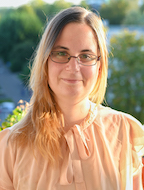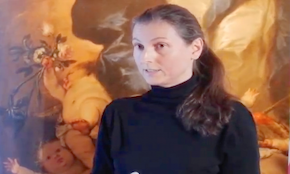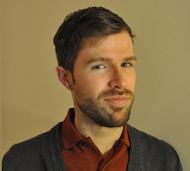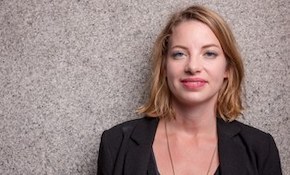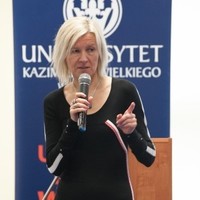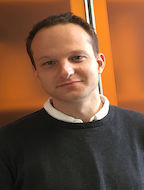
Speakers
Kyung-Ho Cha: (Neuere deutsche Literaturwissenschaft): Studium der Neueren deutschen Literatur, Mediävistik, Biologie, Philosophie an der Universität Bonn, Oxford University, Columbia University New York. Promotion („Humanmimikry. Poetik der Evolution“) an der Technischen Universität Berlin. Habilitation („Der gute Staatsbürger. Literatur und Staatsbürgerschaft von der Klassik bis zum Vormärz“) an der Universität Bayreuth. Stipendiat der Studienstiftung des deutschen Volkes und DAAD; assoziiertes Mitglied des Graduiertenkollegs "Klassizismus und Romantik“ an der Justus-Liebig-Universität Gießen; DFG-Promotionsstipendiat am Graduiertenkolleg "Körperinszenierungen" an der Freien Universität Berlin; Fellow am ICI Berlin. Institute for Cultural Inquiry, wissenschaftlicher Mitarbeiter im DFG-Projekt "Seelenwanderung und literarische Kommunikation" am Institut für Deutsche und Niederländische Philologie der Freien Universität Berlin; Fellow am Mahindra Humanities Center der Harvard University; Juniorprofessor für Neuere deutsche Literaturwissenschaft (2011–2018). Fellow am Alfried Krupp Wissenschaftskolleg Greifswald (2020-2021). Akademischer Oberrat auf Zeit (2018– ). Aktuelle Forschungsschwerpunkte: Ökologie, Menschenrechte und (Post-)Migration in der Literatur; Asian German Studies.
Cyril de Beun is a scholarship holder of the FWO Flanders and works as a postdoctoral researcher for Modern German Literature and General Literature at the KU Leuven in Belgium. There he was awarded a doctorate in 2017 with the dissertation "Schriftstellerreden 1880-1938: Intellectuals, Interdiscourses, Institutions, Media". This study will be published by De Gruyter in 2021. De Beun is currently researching the phenomenon of an epistemic transition from rhetoric to interdiscursivity around 1800, with special attention to its reception in the German-language Vormärz literature. His research interests include interdiscursive analysis, German literature of the modern era and the Weimar Republic, the social history of literature, and genre and media issues.
Sebastian Donat studied general and comparative literature, Slavic studies and modern German literature in Munich and Volgograd. In 1998 he received his doctorate at the Ludwig-Maximilians-University of Munich with a thesis on the Russian translations of Goethe's "West-Eastern Divan"; his habilitation was awarded there in 2006. In 2009 Sebastian Donat was offered a professorship in Comparative Literature at the Leopold-Franzens-University of Innsbruck. His research focuses on the theory and history of literary translation, German-Russian literary contacts, world literature, literary structuralism, literary absurdity, metrics, literary film adaptation, poetic justice, and interference as a literary concept.
Daniel Falb is a poet and philosopher. He lives and works in Berlin, where he studied philosophy and earned his doctorate with a thesis on the concept of collectivity. He has published four volumes of poetry with kookbooks, most recently “Orchidee and Technofossil” (2019). In addition, Falb works on geophilosophy, the theory of the Anthropocene, and questions of poetics and art theory. After the "Anthropocene. Dichtung in der Gegenwartsgeologie" (Verlagshaus Berlin 2015) the essay “Geospekulationen. Metaphysics for the Earth in the Anthropocene" (Merve) was published in spring 2019. Falb's work has been supported by numerous scholarships and prizes, he received the Kurt Sigel-Lyrikpreis of the PEN Center Germany in 2016. Anne Isabelle François, who completed her Ph.D. at the École pratique des Hautes Études (Paris) and the University of Dresden, is Senior Lecturer (maître de conférences) of comparative literature at Sorbonne Nouvelle University since 2003. Specialising in European literatures of the 20th and 21st centuries, she pursues her research, crossing comparative literature and Gender and Cultural Studies, exploring the forms and expressions of Western imaginaire, as a member of the Centre d’Études et de Recherches Comparatistes.
Lars Koch is professor for Media Studies and New German Literatur at Technische Universität Dresden. In 2013, he was awarded a starting grant by the European Research Council for his research group “The Principle of Disruption. A Figure reflecting complex societies”. He is also Principal Investigator of the collaborative research center 1285 “Invectitivy. Constellations and Dynamics of Insult” (DFG) and editor-in-chief of the “Kulturwissenschaftliche Zeitschrift” (KWZ). In 2005 he received his doctorate with a thesis on “Der Erste Weltkrieg als Medium der Gegenmoderne – Zu den Werken von Walter Flex und Ernst Jünger" at the Groningen Research Institute for the Study of Culture at the Rijksuniversiteit Groningen. He is one of the authors of "Injuring and Insulting. Theatrical Invectives of the Present" (2020) and author of "Hasskommunikation. Über die Brutalisierung der Öffentlichkeit" (Metzler 2021). Teresa Kovacs is assistant professor at the Department of Germanic Studies at Indiana University. Before, she was a post-doc visiting scholar at the University of Michigan. Between 2013 and 2016 she held a position at the University of Vienna. Her current book project focuses on new forms of presence created by the dominant appearance of nonhuman actors in contemporary theatre and performance. Publications (Selection): “Drama als Störung. Elfriede Jelineks Konzept des Sekundärdramas” (transcript 2016), “Postdramatic Theatre as transcultural Theatre” (Narr 2018, co-ed. with Koku Nonoa), “Schlingensief-Handbuch” (in preparation, Metzler 2020, co-ed. with Peter Scheinpflug and Thomas Wortmann).
Aleksandra Lévy-Lendzinska, born in Poland/Katowice, studied at the University Freiburg im Breisgau History and Romance studies, now lives and works in Paris. She received her doctorate in German Studies in the Co-tutelle method at the Sorbonne University Nouvelle - Paris 3 and the Paris-Lodron University of Salzburg on a single novel, the Breathing Swing by Herta Müller. During her doctorate she was a member of the Research Training Group 1678 Materiality and Production in Düsseldorf. Her research interests in contemporary literature lie in the fields of body and language, camp literature, OuLiPo. She is currently working on a lecture on Paul Celan and Herta Müller for the XIV Congress of the International Association for German Studies (IVG) in Palermo in August 2020. Nadine Lordick is a research assistant in the field of German medieval studies at the Technical University of Braunschweig. Her research interests are the narratology of space and time in Middle High German texts (especially in the spiritual literature), concepts of 'strangeness' in Middle High German travel representations, and the genre of the so-called 'Marienleben', which she examines in her dissertation project from a narratological perspective. In a research project on the afterlife journey of the knight Tnugdalus, she investigated the relationship between 'organicity' and 'technicity' in the depiction of hell in the text. Barbara Di Noi in Florence, where she studied German, English, Comparative Literature and Aesthetics. After her doctorate she completed her doctorate in German Studies (1995 title of the dissertation: "The Song of Olimpia. Music and narrative structures with E. T. A. Hoffmann"; doctoral supervisor: Luciano Zagari). Since 1999 she has been a lecturer for German literature in Pisa, Cassino and Florence, where she has also taught comparative literature. Her academic focus is on Kafka, to whom she has dedicated two monographs (2009 and 2016); Benjamin, in particular the work Passages (2016; On Benjamin Anthropological Materialism, in: Altre Modernità 2019), Romanticism and Literature of Decadence: in 2007 she dedicated a comparative study to Georg Trakl and Arthur Rimbaud. She has also written about Stefan George as a translator (The Flowers of Evil 2004).
Alessia Pannese studied law at the University of Rome (Laurea), veterinary medicine at the University of Perugia (Laurea), and veterinary science at the University of Cambridge (MPhil). She received her doctorate in neurobiology from Columbia University (PhD). Beside scientific research, she studied literature and arts at the University of Oxford (MSt), where she is currently a doctoral student in the history of art. She held fellowships at institutes for advanced studies in New York, Paris, London, and Delmenhorst (Hanse-Wissenschaftskolleg). Pierre-Louis Patoine is assistant professor of American literature at Sorbonne-Nouvelle University. He is the author of “Corps/texte”, a book on the role of the empathic, physiological body in the experience of reading (ENS Éditions, 2015). He has published articles on contemporary American literature, biosemiotics and literary neuroaesthetics. He is co-director of the [Science+Literature] research group at Paris III and co-editor of the journal “Épistémocritique”. His current research investigates the ethical and aesthetical aspects of immersion and altered states of consciousness during literary reading and video gaming.
Tanja Prokić, (*1980) ist Literatur- und Medienkulturwissenschaftlerin. Sie lebt und arbeitet in Dresden. Das Studium der Philosophie schloss sie im München ab. Die Promotion erfolgte im Fach Neuerer deutscher Literatur zum Thema der Selbsterzählung. Ihre Forschungsschwerpunkte liegen auf der Analyse medienkultureller Konstellationen, besonders in der klassischen Moderne und der Gegenwart. Seit 2017 ist sie Teilprojektleiterin im SFB 1285 „Invektivität. Konstellationen und Dynamiken der Herabsetzung“ mit einem Projekt zu Theater, Perfomance und Gegenwartskunst. Es liegen zahlreiche Publikationen mit Schwerpunkten zu Medienästhetik vor. Zuletzt erschien die Kollektivmonografie Verletzen und Beleidigen. Versuche einer theatralen Kritik der Herabsetzung (August Verlag).
Monika Szczepaniak, Professor of Literature and Cultural Studies at the Institute for Cultural Studies at the University of Bydgoszcz (Poland); studied German language and literature in Rzeszów, Erfurt and Hamburg; dissertation Deconstruction of the myth in selected prose works by Elfriede Jelinek; habilitation Men in Blue. Bluebeard images in German-language literature; scholarship holder of the Foundation for the Promotion of Polish Science, the Alexander von Humboldt Foundation, the DAAD and the Austrian government. Her research interests include German-language literature of the 20th and 21st centuries, Elfriede Jelinek, constructions of masculinity in literature and culture, war and violence research, spaces and atmospheres, love and desire in cultural texts. Alexander Waszynski (*1984) is a literary and media scholar. Currently he works as a research assistant at the universities in Erlangen-Nuremberg (comparative literature) and Braunschweig (philosophy). His research interests lie in the fields of phenomenology, literary and media theory as well as in the literature of 17th-19th centuries. After studying various humanities and social sciences subjects he was taught in the general and comparative Doctorate in literary studies. Waszynski was a member of the DFG network "Touching - literary, media and political Figurationen" and multiple scholarship holder of the German Literature Archive Marbach. The dissertation "Readability according to Hans Blumenberg" will be published in Autumn 2020 (De Gruyter).
|
| Online user: 16 | Privacy |

|

